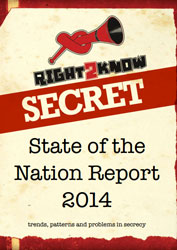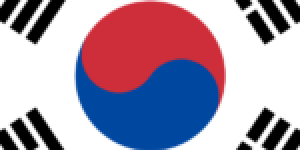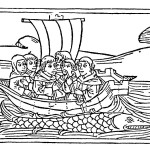Right2Know Campaign – Mapping SA’s (Growing?) Climate Of Secrecy
No Comments yet Twenty years into South Africa’s democracy, the right to know faces apparent threats.
Twenty years into South Africa’s democracy, the right to know faces apparent threats.
The right to know – to access and share information, to organise, protest and speak out – is the foundation of a just society. Information rights were a driving principle in the struggle against apartheid, and at the centre of the democratic gains achieved in the 1990s.
Twenty years into South Africa’s democracy, these gains appear to be facing greater limits.
Climate of secrecy
At the heart of this is an emerging trend towards security-statist approaches to governance.[i] An expansive ‘national security’ mentality encroaches on democratic principles by stifling debate,undermining accountability and protecting the powerful from scrutiny.
The best-known embodiment of this securitystatist mentality is the Protection of State Information Bill (the Secrecy Bill), which sits on President Zuma’s desk, awaiting signature. Few laws have so focused the public mind on the problem of secrecy in our society and what appears to be a resurgence of the ‘securocrats’.
But the Bill may merely be a symptom of a broader climate of secrecy and securitisation:
– The use of secrecy to shield political actors, in particular President Zuma, from embarrassment and accountability;
– Increasing limitations on protest, with an extraordinary spike in police violence and growing signs of criminalisation of protest;
– Apparent increase in the use of state-security policies such as the National Key Points Act;
– Lack of democratic oversight of surveillance tools which are vulnerable to abuse.
Ordinary people, ordinary secrets
Secrecy is not only about the political machinations of major institutions. At the heart of possibly every grassroots struggle for social, economic or environmental justice, there is a need for information. This is often basic information about bread-and-butter issues, which people need in order to exercise control over their own lives. Here we see worrying signs of the obstacles to accessing information:
– Access to information mechanisms are failing;
– There is too little proactive release of information;
– The transparency obligations of the private sector, particularly in industries with a serious environmental impact, are largely overlooked.
All of these developments undermine democracy. It is a given that secrecy is sometimes necessary to protect human life or a person’s legitimate claim to privacy. But secrecy is easily misused, and when this happens, it becomes a tool to protect the powerful.
This report’s findings highlight the need for greater transparency so that the public can monitor the use of state secrecy, as well as the need for a greater commitment to transparency both from the state and the private sector. These conditions have made it very difficult to even research this short report.
But our findings also underscore the need for continued, unified action to resist a growing culture of secrecy and authoritarianism. The recent regeneration of information activism in South Africa must continue: South Africans must continue to challenge the increasing power and influence of the country’s securocrats in our politics and in
our daily lives.
Right2Know Campaign, September 2014
Read the full report: http://www.r2k.org.za/
You May Also Like
Comments
Leave a Reply








